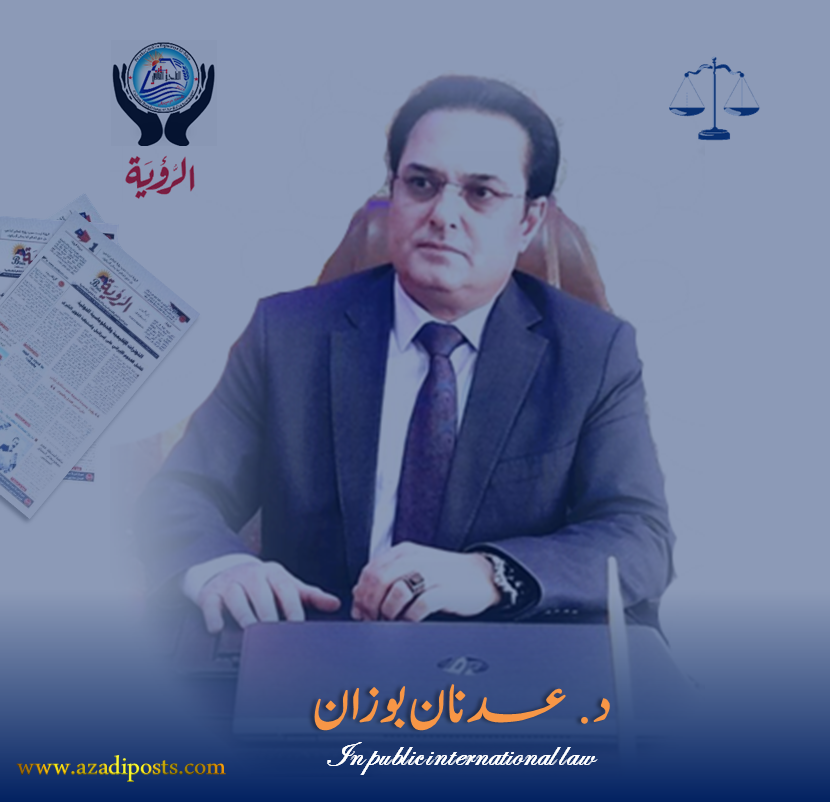The Philosophical Vision: The Human Essence Between the Claim of Virtue and the Ordeal of Time
- Super User
- الرؤية الفلسفية
- Hits: 4097

By: Dr. Adnan Bozan
The value of a human being is not a trait acquired from the outside, nor a medal pinned to the chest to convince others of one's nobility. It is, above all, a truth rooted deep within, woven from the fabric of one’s principles, and revealed in those moments when time strips away the masks one by one. A person may easily claim virtue—at the cost of nothing more than a graceful phrase or a staged gesture performed at a moment he believes all eyes are upon him. Yet time—this silent philosopher who never errs—does not allow pretenses to live long. It tests them, exposes their falsehood, and rearranges the shadows so that only the true essence remains in the light.
Perhaps the greatest thing about the human being is that he is tested not when he speaks, but when he is compelled to act. Words may construct worlds, but actions alone can destroy or build what eloquence cannot conceal. Between word and deed lies a space not measured by distance, but by the depth of sincerity within it. In that space many fall—those who crafted for themselves a counterfeit image—because their virtue was nothing more than a coat worn before others, not a skin grown from the soul itself.
Principles are not slogans for moral decoration; they are lifelong trials. A single moment may reveal what years of pretense have concealed, and may shatter a wall built of polished words and refined declarations. A soul that has long sung of honor—if it does not believe in it with existential conviction—will collapse at the first storm like a straw in the wind. Here, time reveals its just severity; it does not ask permission to tear away the masks, nor does it spare those who believed virtue could be borrowed from others.
And the true moral test does not lie only in confronting hardships, but also in those moments when one is granted power and allowed to act without oversight. In secrecy—where the authority of the social gaze dissolves—the true face of a person appears. One who possesses inner dignity needs no watching eye to remain upright, for his integrity is not obedience to an external law but a commitment to an inner one dictated solely by his conscience. As for those who display virtue out of fear of punishment or desire for praise, they possess no virtue at all—only the image of one that crumbles at the first opportunity for rebellion.
Thus time becomes a mirror that flatters no one: in it the sincere unveil the radiance of their purity, and through it the falsehood of those who thought morality a garment to be changed at will is exposed. Yet time does more than expose; it polishes the principles of the truthful, making them more rooted, for the experiences they undergo transform those principles from mere ideas into dispositions, and from slogans into traits inseparable from their essence. The one who guards his virtue in the very moment he could have betrayed it is the only one entitled to say that his principles are not ornamentation, but identity.
The essence of a human being is measured by his ability to remain faithful to himself when circumstances change, by his refusal to let his desires lead him into conflict with his values, and by his willingness to pay the price of his honesty in a world that does not always reward the honest. Nothing is harder than being truthful in an age that considers truthfulness naïve, noble in a society that celebrates cunning, or loyal in a world that has mastered the art of escape.
Yet despite all of this, the honest person remains the one whom the winds cannot alter, for he has chosen to be a tree with roots no storm can uproot, not a leaf tossed about by the seasons. Such a person fears no exposure as he walks through time, for he carries nothing within that deserves concealment. The one who hides behind words, however, will be stripped bare the moment he is forced to act—for actions, as you have said, are witnesses to words. In the truthfulness of their harmony, the human essence is revealed, and one may discern what a person claimed and what he actually lived.
A person’s value is not what he imagines about himself, nor what others say about him, but what he proves when life places him under its microscope. How many moments does this lens sweep over human beings, refining them as fire refines metals: gold remains gold, no matter how long it burns, while the glittering veneer on base copper evaporates.
For this reason, the greatest lesson a human being can learn is to live as though time stands always behind him—listening to every word, watching every act, recording every gesture. For nothing escapes time, and nothing remains in the end except what was genuine in the core of one’s being.


